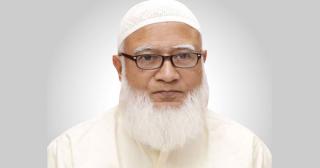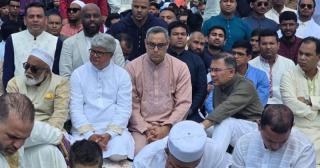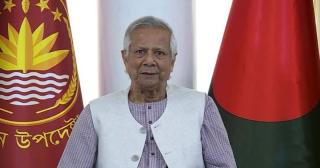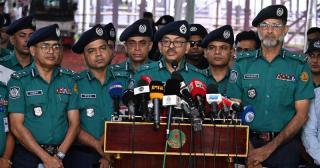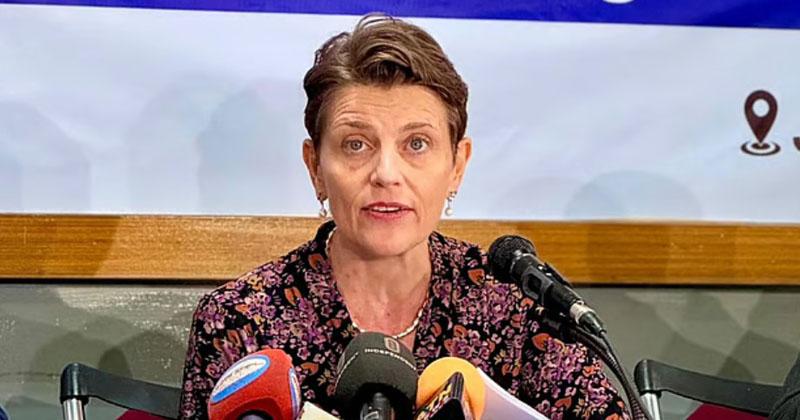
United Nations Resident Coordinator in Bangladesh Gwyn Lewis today said the upcoming national election can still be inclusive even if the Awami League does not take part, as long as people are able to vote and express their opinions freely.
“The UN inclusive election means every segment of the society should be able to vote and everyone should have access and ability to participate in the election,” she said, adding that people’s participation is the key determinant of inclusivity in an election not the political parties.
Lewis made the remarks at a “DCAB Talk” hosted by the Diplomatic Correspondents Association, Bangladesh (DCAB) at the National Press Club in the capital.
Extending UN's support for a credible and peaceful election, UNRC Lewis said that inclusiveness for the UN is very specific about every Bangladeshi having a voice.
However, she said that the participation and inclusion of all political parties will help prevent a ‘very polarised position’ and potential ‘unrest’, though the circumstances should be viewed in the context of the country.
“But I think circumstances need to be looked at....the decision of the government needs to be looked at in the context of the country. It is very much a political decision and again a decision of the government,” she said
She clarified that the UN does not take a political position on internal party matters. “The UN is not involved in politics. These questions should be directed to the government and political parties,” she said.
She reiterated that the UN remains ready to offer technical assistance to the Election Commission, but would not play any role in determining the election schedule.
“Holding elections is a political decision,” she said adding that the government and political parties will decide when the polls will happen.
Responding to a question on the truth and healing process, Lewis said, “Our advice on truth and healing would be very strong national consultations with the people of Bangladesh to hear their voices and thoughts and how they see the future.”
She, however, said it is very difficult to say what path should be taken until the consultation with the people in the country is finalized. “There needs to be a lot more consultations.”
Lewis also said the UN supports the Bangladesh government’s ongoing reform initiatives, though the nature and extent of those reforms remain entirely within the government’s jurisdiction.
“Since August 2024, the UN has proven to be a trusted and reliable partner. Even as we addressed immediate shocks, our commitment to long-term, inclusive development remained steadfast,” she said.
On the question of whether the UN prioritizes elections or reforms first in Bangladesh, she said it is not the UN concern, it is up to the government and the people of Bangladesh.
Replying to another query, she said that the UN Human Rights Office will soon establish a small office in Bangladesh.
“We understand from the government that a MoU is finalised (in this regards). We are waiting to sign it soon,” she said.
Turning to regional issues, Lewis said the establishment of a humanitarian corridor in Myanmar’s Rakhine state depends on bilateral understanding between Bangladesh and Myanmar.
“If both countries agree, the UN will assist. However, the UN will not take any decision on its own in this regard,” she said, noting that access to Rakhine for delivering humanitarian aid has become “extremely difficult and challenging.”
On the Rohingya crisis, the UN official reiterated her call for a safe, voluntary, and dignified repatriation of the displaced population.
“We hope for a political solution,” she observed while lauding Bangladesh’s humanitarian efforts and UN’s continued support in safeguarding Rohingya lives.
Highlighting Bangladesh’s contribution to global peace, Lewis praised the country’s peacekeepers for their commendable service in conflict-prone regions like Liberia and the Democratic Republic of Congo.
The UN continues to work with Bangladesh in multiple sectors, she said, citing areas such as green technology, human rights, the garment industry, migration, climate change, and gender policy.
DCAB President AKM Moinuddin and General Secretary Md Arifuzzaman Mamun also spoke at the event.










